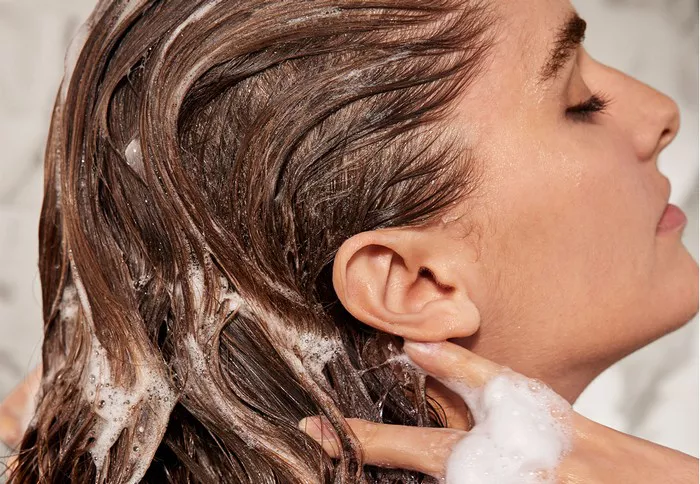Hair care can be a complex topic, with many conflicting opinions about the best practices for maintaining healthy locks. One common question that arises is whether washing your hair every day leads to greasiness. For many, greasy hair is a frustrating issue that can affect confidence and styling choices. In this article, we will explore the relationship between daily washing and greasy hair, examining the underlying factors that contribute to oil production and offering practical advice for managing your hair care routine.
Understanding Hair and Oil Production
The Role of Sebum
Sebum is the natural oil produced by sebaceous glands in the scalp. This oil serves several important functions:
Moisture Retention: Sebum helps keep hair hydrated and prevents it from becoming dry and brittle.
Protective Barrier: It acts as a barrier against environmental damage, such as pollution and UV rays.
Scalp Health: Sebum maintains the health of the scalp by preventing dryness and irritation.
The amount of sebum produced can vary from person to person and is influenced by several factors, including genetics, hormone levels, and lifestyle.
Factors Influencing Oil Production
Several factors contribute to how much oil your scalp produces:
Genetics: Some people naturally have oilier scalps due to their genetic makeup.
Hormones: Hormonal fluctuations, particularly during puberty, menstruation, or pregnancy, can increase oil production.
Diet: A diet high in processed foods and sugars may lead to increased oil production, while a balanced diet can help regulate it.
Environmental Factors: Humidity and temperature can also impact how oily your hair feels.
The Impact of Daily Washing on Oil Production
The Cycle of Oil Production
When you wash your hair, you remove the sebum that has built up on your scalp and hair. This can create a cycle where your scalp compensates for the loss of oil by producing more sebum, leading to a feeling of greasiness sooner than if you washed your hair less frequently.
See Also: Is Hair Milk the Same as Leave-In Conditioner? Let You Know
Daily Washing and Its Effects
Frequent Stripping of Oils: Washing your hair daily can strip away natural oils, prompting your scalp to produce even more oil to compensate. This can lead to a cycle of greasy hair.
Scalp Sensitivity: Daily washing may irritate the scalp, leading to increased oil production. If your scalp is inflamed or sensitive, it may respond by generating more oil as a protective mechanism.
Product Buildup: Using heavy styling products can also contribute to a greasy appearance. Daily washing may not be enough to remove buildup from these products, making your hair look oily.
Hydration Levels: When you wash your hair every day, you may inadvertently dry out your scalp. In response, your scalp may produce more oil to keep your hair hydrated, resulting in greasiness.
Myths and Misconceptions
Many myths surround hair washing practices. Here are a few common misconceptions:
Myth 1: Daily washing is the only way to manage oily hair.
Truth: While washing daily may seem like a solution, it can exacerbate greasiness in the long run. Finding a balance is key.
Myth 2: Oily hair is a sign of poor hygiene.
Truth: Oily hair can occur for various reasons, including genetics and hormone levels. It does not necessarily reflect personal hygiene.
Myth 3: All hair types should be washed the same way.
Truth: Hair types vary, and washing frequency should be adjusted based on individual needs and hair type.
How to Manage Greasy Hair
If you struggle with greasy hair but prefer to wash it daily, consider the following tips:
1. Adjust Your Shampoo
Choose the Right Shampoo: Look for a sulfate-free shampoo specifically designed for oily hair. These shampoos can help remove excess oil without over-drying your scalp.
Avoid Heavy Products: Heavy conditioners and styling products can contribute to greasiness. Opt for lightweight formulas that won’t weigh your hair down.
2. Alternate Washing Frequency
Instead of washing your hair every day, consider alternating between washing and rinsing with water only. This approach can help your scalp adjust to a less frequent washing routine while maintaining cleanliness.
3. Scalp Care
Exfoliate Your Scalp: Regularly exfoliating your scalp can help remove dead skin cells and product buildup, reducing oiliness. Look for scalp scrubs or gentle exfoliating treatments.
Use Tea Tree Oil: This natural oil has antimicrobial properties that can help control oil production and maintain a healthy scalp.
4. Manage Your Diet
Balanced Nutrition: Eating a balanced diet rich in vitamins, minerals, and healthy fats can support overall scalp health. Foods like avocados, nuts, and leafy greens are beneficial for maintaining healthy oil levels.
Stay Hydrated: Drinking enough water can help regulate oil production and keep your scalp hydrated.
5. Embrace Dry Shampoo
Dry shampoo can be a lifesaver for those with greasy hair. It helps absorb excess oil and refresh your hair between washes, allowing you to extend the time between shampooing.
6. Consult a Professional
If greasy hair persists despite trying various methods, consider consulting a dermatologist or a hair care professional. They can provide personalized advice and suggest treatments tailored to your specific needs.
Conclusion: Finding Your Hair Washing Balance
In conclusion, washing your hair every day does not inherently lead to greasiness, but it can create a cycle of oil production that makes your hair feel oily sooner. By understanding the factors that influence oil production and adopting a balanced hair care routine, you can manage greasy hair effectively.
Finding the right frequency and methods for washing your hair is essential for achieving healthy, beautiful locks. Listen to your hair and scalp, and don’t hesitate to experiment with different routines until you discover what works best for you. With the right approach, you can enjoy clean, vibrant hair without the worry of greasiness.
You Might Be Interested In
- Castor Oil: A Versatile Solution for Skin and Hair Care
- The Truth About Hair Bleach: Can It Cause Hair Loss?
- Does Hair Restoration Really Work?


